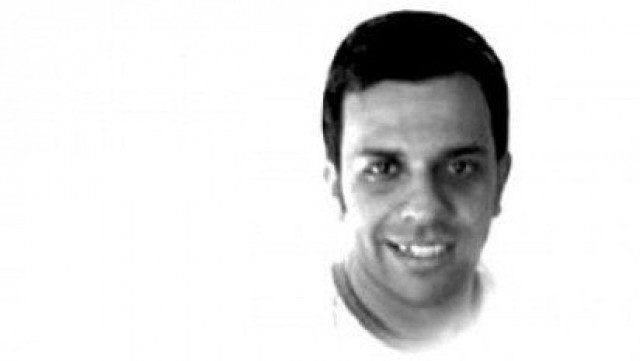We are no better than KESC

We are no better than KESC
Think of Pakistan’s finest years of cricket. Think of when economic growth has been at its most buoyant. The latter is admittedly most open to debunking, but is there not an undeniable pattern?
Hard-headed chairmen, autocratic captains, military dictators, all brook no crap. Call a spade a spade even when it is a spoon and who gets rid of those not doing what they are meant to? How many customer service representatives have you had to shout at to get a tangible response, how many shopkeepers or government babus?
This trait forms the heart of the most interesting experiment being carried out in Pakistan today: KESC’s name and shame campaign, to combat what officials say is electricity theft, worth nearly $1.5 million a month. The idea is simple: make public the names of those who don’t pay bills and shame them into doing so. Something similar exists in some Karachi apartment blocks whenresidents don’t pay maintenance. In the UK, a tabloid ran a campaign to identify child sex abusers. Which example speaks sadder truths, I am not sure.
The campaign is the fruit of a year of extensive focus group-based research (no I didn’t think KESC did such things either), where truly disturbing discoveries were made. Most people, for instance, didn’t know stealing electricity was actually a crime. Women of the house knew most about ways to steal electricity, which makes strange sense if you acknowledge that they mostly control household budgets. They also learnt that more than 70 ways exist to steal electricity, though unfortunately for the KESC, they’ve identified only 22. The one resounding message to emerge was that posteriors must be booted for people to pay up. Since then, six ads have been published in newspapers, each outing between 15-24 names. Up to 150 FIRs have been registered (the KESC has its own policing) and countless people have paid up before their names are published or FIRs recorded. Unsurprisingly the biggest thieves have been those who can afford to pay. A large majority of them live in DHA. Big names, political figures, big families, businessmen, TV personalities, men of religion have figured. Unapologetically the rich are being targeted. Examples have to be made.
Karachi being egalitarian in spirit, however, crime is no one’s exclusive preserve. So the tales go that in Gulistan-e- Jauhar, 180,000 kundas were taken down in one day. Less than 24 hours later, like a recurring cancer, 60,000 were back up. In another area a parallel, fake KESC is in operation. None of this is to suggest that the utility is some kind of Robin Hood. It is decrepit; the kunda, but one evil, does not exist in a vacuum. If it is there in the first place, then the KESC is doing something wrong. And much theft occurs from within the organisation. But the campaign puts the spotlight on one essential component of KESC’s failure: us. If the KESC is rotten, then we the consumer are not any better. And it will not change unless we do.
That great Pakistani mirage, the concept of honour, also underpins this campaign. This is about taking great pride and care in not having your name sullied publicly. And that is why it is so important, because if the need to have it in the first place is a depressing, damning comment on where we are, then its failure will say inestimably worse.



















COMMENTS
Comments are moderated and generally will be posted if they are on-topic and not abusive.
For more information, please see our Comments FAQ